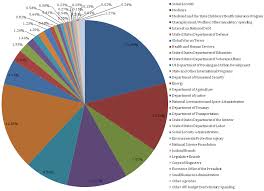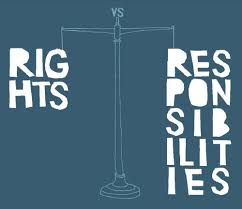Wednesday, December 21, 2011
A Collection
It was Ryan’s birthday. His parents drove from an hour away to bring him to the free show. They celebrated his big day in Ft. Smith, Arkansas- at a coffee shop- listening to a slightly neurotic girl tell stories and sing songs. His parents had tears sliding down their cheeks the entire night. His eyes, made bright by the bushel of red, moppy hair on his head, glowed with peace and joy. They squeezed my hands tight. His dad’s face was covered with a scruffy beard and his hands felt like a man who has known hard work.
“Thank you. Tonight was… well, let’s just say it was divine that we ended up here. And we needed it. My wife and I…” his voice cracked, “This is exactly where we were supposed to be tonight.”
I wonder if anyone else sees their tears or hears the crack in his voice? It’s just a night to some, but to others, the night is holding them together, carrying them into the moring.
Read the whole blog on Jenny's site: A Collection
Monday, October 25, 2010
Juan Williams

In response to the firing of Juan Williams, here are two wonderful videos of Jon Stewart:
Wednesday, October 13, 2010
School Reforms
 Does anyone notice a trend that when school's expect a lot from students/staff/parents, that there is always resistance? Michelle Rhee expected a lot from parents, students, unions, and teachers...and "also angered many with teacher layoffs, firings and a brusque style." She improved the student's test scores by expecting more.
Does anyone notice a trend that when school's expect a lot from students/staff/parents, that there is always resistance? Michelle Rhee expected a lot from parents, students, unions, and teachers...and "also angered many with teacher layoffs, firings and a brusque style." She improved the student's test scores by expecting more.Look at this trend in movies: Lean on Me, Coach Carter, Take the Lead. In all these based-upon-real-event movies, the main character expects more from the students...and parents and other teachers resists.
It seems like everyone expects the school leaders to wave a magic wand and everyone will be smarter...they just don't want to be expected to work for it.
We need more schools with backbones that say, "We are doing this in the best interest of the students. We are NOT going to back down when someone complains."
Tuesday, October 5, 2010
Bar Stool Economics

Bar Stool Economics
Suppose that every day, ten men go out for beer and the bill for all ten comes to $100. If they paid their bill the way we pay our taxes, it would go something like this:
The first four men (the poorest) would pay nothing.
The fifth would pay $1.
The sixth would pay $3.
The seventh would pay $7.
The eighth would pay $12.
The ninth would pay $18.
The tenth man (the richest) would pay $59.
So, that's what they decided to do.
The ten men drank in the bar every day and seemed quite happy with the arrangement, until on day, the owner threw them a curve. "Since you are all such good customers," he said, "I'm going to reduce the cost of your daily beer by $20."Drinks for the ten now cost just $80.
The group still wanted to pay their bill the way we pay our taxes so the first four men were unaffected. They would still drink for free. But what about the other six men - the paying customers? How could they divide the $20 windfall so that everyone would get his 'fair share?' They realized that $20 divided by six is $3.33. But if they subtracted that from everybody's share, then the fifth man and the sixth man would each end up being paid to drink his beer. So, the bar owner suggested that it would be fair to reduce each man's bill by roughly the same amount, and he proceeded to work out the amounts each should pay.
And so:
The fifth man, like the first four, now paid nothing (100% savings).
The sixth now paid $2 instead of $3 (33%savings).
The seventh now pay $5 instead of $7 (28%savings).
The eighth now paid $9 instead of $12 (25% savings).
The ninth now paid $14 instead of $18 (22% savings).
The tenth now paid $49 instead of $59 (16% savings).
Each of the six was better off than before. And the first four continued to drink for free. But once outside the restaurant, the men began to compare their savings.
"I only got a dollar out of the $20,"declared the sixth man. He pointed to the tenth man," but he got $10!"
"Yeah, that's right," exclaimed the fifth man. "I only saved a dollar, too. It's unfair that he got ten times more than I!"
"That's true!!" shouted the seventh man. "Why should he get $10 back when I got only two? The wealthy get all the breaks!"
"Wait a minute," yelled the first four men in unison. "We didn't get anything at all. The system exploits the poor!"
The nine men surrounded the tenth and beat him up.
The next night the tenth man didn't show up for drinks, so the nine sat down and had beers without him. But when it came time to pay the bill, they discovered something important. They didn't have enough money between all of them for even half of the bill!
And that, boys and girls, journalists and college professors, is how our tax system works. The people who pay the highest taxes get the most benefit from a tax reduction. Tax them too much, attack them for being wealthy, and they just may not show up anymore. In fact, they might start drinking overseas where the atmosphere is somewhat friendlier.
David R. Kamerschen, Ph.D.
Professor of Economics
University of Georgia
Monday, September 27, 2010
Response to Obama's Education Speech

Everyone seems to have an opinion on how to improve education. President Obama recently put out an idea to extend the school year. While that sounds really great, I don't think that in itself will improve education...especially since there are several additional factors in quality education.
One of my chief complaints about extending the school year is when can teachers have vacation? Recently I posted this question on Yahoo! and people just went off on me since teachers have 10-12 weeks during the summer and other holidays scattered throughout the school year. While people may have crazy ideas that teachers do nothing when they are not in school, my point is why can everyone else decide when they take a day off. If a teacher gets married, they cannot have a three-day honeymoon unless it is scheduled around their work schedule. Also, people have this crazy idea they can pull their students out of school to go on vacation; but they hold their teacher to a higher standard and even expect the teacher to adequately teach their students while they are absent.
While reading several responses on the Yahoo! thread, I also found out that many people assume that teachers work only between 9 am and 3 pm. I have no idea where they came up with this work schedule; I believe students/teachers are normally in school an hour or two more than the assumed six hours. Also, teachers have several other duties such as grading papers, parent conferences, lesson plans, student club activities, phone calls, normal HR tasks, paperwork, etc. I find this idea that teachers only work while students are in the classroom as ridicules as saying that your local weatherman only works fifteen minutes because that is all you see them on television.
I also find the idea absurd that the teacher's union is the main reason for our education problems. I believe Dave Glover's radio show best described the flaw in this. When a caller mentioned unions, bad teachers, and an under performing school, Dave Glover wondered out loud, "Which came first, the chicken or the egg?" He clarified by asking what would happen if you took all the teachers from the poor performing school and switched them with teachers from an excellent school system. Would the teachers switch roles and the broken still be broken and the excelling school still excel? I believe so since a highly supported teaching staff will actually improve itself while a broken system needs to fix the problems before just blaming the teachers. Looking at the big picture, a students education is based on more than the teacher in the classroom; people need to look at the administration, government, and the parents.
While I am not a teacher, I also have my input on how to improve education: Let's expect more from the students. We currently don't want anyone to feel bad, so some schools are implementing a policy of the lowest score possible to be a 65%. Some schools have a policy that students that get caught cheating can have an alternative assignment. Some students assume that if they do no do the work, they can't get a zero for the assignment. Some school districts allow students to miss weeks worth of classes and they can make up the work. Some school districts even allow homework to be turned in during the next semester. Some districts blame the teachers for their horrible school policies!
The most you can expect from a student is the least you expect of them.
Wednesday, September 15, 2010
Obstacle to Deficit Cutting: A Nation on Entitlements

Taken straight from Sara Murray's Wall Street Journal article:
Efforts to tame America's ballooning budget deficit could soon confront a daunting reality: Nearly half of all Americans live in a household in which someone receives government benefits, more than at any time in history.
At the same time, the fraction of American households not paying federal income taxes has also grown—to an estimated 45% in 2010, from 39% five years ago, according to the Tax Policy Center, a nonpartisan research organization.
A little more than half don't earn enough to be taxed; the rest take so many credits and deductions they don't owe anything. Most still get hit with Medicare and Social Security payroll taxes, but 13% of all U.S. households pay neither federal income nor payroll taxes.
Friday, July 30, 2010
My General Thoughts About Education

In response to the Politico article "What do you think of Obama's education plan?", I wrote this:
Unfortunately, Obama's policy is the same as any other government official's policy. We have administrative officials (whether superintendants, education commissioners, and politicians) who feel like the weight of the educational system is on their shoulders. So, instead of relying on the teachers to do a good job, these non-teaching suits make policies and tasks that take away the teachers attention away from the classroom. This is their way of saying they did something…whether good or bad.
For those people who say that unions are the problem, getting rid of the union will not solve any educational issues. In fact, the only issue I see with the union is that they cannot easily remove an ineffective teacher. To compound that problem, the schools then make policies (like TPS reports) to make up for not firing teachers. For instance, in a local district a teacher was getting a divorce and lived in his classroom instead of finding an apartment. Instead of firing the teacher, the district spent $$$$ to rekey all the schools. This just an example of how schools make bad and broad policies to cover-up bad actions.
I believe the way to make education better is to ask the teachers what they need to help teach the students…I doubt many will say to spend more money. They will mention that they want support/backing from the principals, counselors, and superintendant. They will mention that they want parents to be more involved. They will mention that they want to spend more time teaching and less time doing paperwork. They will mention that they want an effective attendance policy. Some teachers will say we need to expect more from our students. Most teachers will even say that there needs to be a better process to remove ineffective teachers.
Personally, I don’t like the idea of basing a teacher’s salary on how well the students perform. Some classrooms are filled with brilliant students while others are filled with special-needs students while others are filled with gang members. This policy is similar to basing your salary on how well your neighbor’s students perform…you have some influence—but not a whole lot.
Finally, remember that the most we can get out of our students is the least we expect of them.
Tuesday, April 13, 2010
How much do you owe?

According to this website, the national debt is $12,691,221,577,248.59 or about $41,191.12 per person...but not everyone pays the same amount since there are several tax brackets. Here is a simple breakdown of how much each person pays in taxes based upon their income level:
| Number of Returns with Positive AGI | Income Taxes Paid ($ millions) | Group's Share of Income Taxes | Income Split Point | Average Tax Rate | |
| All Taxpayers | 141,070,971 | $1,115,504 | 100% | 12.68% | |
| Top 1% | 1,410,710 | $450,926 | 40.42% | > $410,096 | 22.45% |
| Top 2-5% | 5,642,839 | $225,367 | 20.20% | > $160,041 | 20.53% |
| Top 6-10% | 7,053,548 | $118,139 | 10.59% | > $113,018 | 12.66% |
| Top 11-25% | 21,160,646 | $171,443 | 15.37% | > $66,532 | 9.43% |
| Top 26-50% | 35,267,743 | $117,368 | 10.52% | > $32,879 | 7.01% |
| Bottom 50% | 70,535,485 | $32,261 | 2.89% | < $32,879 | 2.99% |
Using simple mathematics, we can calculate how much each group must pay to reduce the debt to zero. Of course, this does not include any corporate taxes…but then it doesn’t include any state or local taxes.
| Number of Returns with Positive AGI | Group's Share of Income Taxes | Owed | |
| Top 1% | 1,410,710 | 40.42% | $3,636,319.13 |
| Top 2-5% | 5,642,839 | 20.20% | $454,315.06 |
| Top 6-10% | 7,053,548 | 10.59% | $190,542.46 |
| Top 11-25% | 21,160,646 | 15.37% | 92,182.48 |
| Top 26-50% | 35,267,743 | 10.52% | $37,856.59 |
| Bottom 50% | 70,535,486 | 2.89% | $5,199.88 |
Monday, March 29, 2010
The Federal Governments Owns or Controls How Much?
 Fifty-one percent of the private economy is today owned or controlled by the federal government. Before September of 2008 and for all the previous history of this country, one hundred percent of our economy has been private as America. But since September 2008 with the TARP bailout, that was under George W. Bush, that was $700,000,000,000; from that point forward we watched government take over one industry after another. We purchased, the government, purchased large banks, the largest insurance company in the United States, AIG, Freddie and Fannie, the secondary mortgage market, which means the United States government now owns over fifty percent of all private home mortgages. We still own Chrysler and GM the largest car companies. We own the student loan industry and now we control the health sector which is another eighteen percent of the economy. You add all that up, 51 percent of the economy is now owned or controlled by the federal government.
Fifty-one percent of the private economy is today owned or controlled by the federal government. Before September of 2008 and for all the previous history of this country, one hundred percent of our economy has been private as America. But since September 2008 with the TARP bailout, that was under George W. Bush, that was $700,000,000,000; from that point forward we watched government take over one industry after another. We purchased, the government, purchased large banks, the largest insurance company in the United States, AIG, Freddie and Fannie, the secondary mortgage market, which means the United States government now owns over fifty percent of all private home mortgages. We still own Chrysler and GM the largest car companies. We own the student loan industry and now we control the health sector which is another eighteen percent of the economy. You add all that up, 51 percent of the economy is now owned or controlled by the federal government.Minnesota Congresswoman Michele Bachmann on 97.1 FM Talk on 3/29/2010.
Friday, March 26, 2010
Reason Saves Cleveland
Featuring sitcom legend, Price Is Right host, and proud Clevelander Drew Carey, each 10-minute episode investigates and analyzes the problems that turned Cleveland from the nation's sixth-largest city in 1950 into today's "Mistake By The Lake."
Like all too many American cities, Cleveland seems locked into a death spiral, shedding people, jobs, and dreams like nobody's business. When it comes to education, business climate, redevelopment, and more, Clevelanders have come to expect the worse.
Is a renaissance possible? Of course it is, but only if the city's leaders and residents are willing to learn from other cities such as Houston, Chicago, Oakland, and Indianapolis. And only if they're willing to try new approaches to old problems.
Reason.tv's Nick Gillespie narrates and talks with educators, elected officials, businesspeople, policy experts, and residents from all walks of life. Reason Saves Cleveland maps a route back to prosperity and growth not just for Cleveland but for other once-great American cities.
Reason Saves Cleveland with Drew Carey is written and produced by Paul Feine; camera and editing by Roger Richards and Alex Manning; music by the Cleveland band Cats on Holiday.
Conservatives vs Progressives
 The different world views that we have between progressives and conservatives is that liberals believe that their definition of freedom is entitlements while conservatives define it by limited government.
The different world views that we have between progressives and conservatives is that liberals believe that their definition of freedom is entitlements while conservatives define it by limited government.Missouri Senator Jim Lembke on 97.1 FM Talk on 3/26/2010.
Friday, October 23, 2009
Needing to Find a Purpose
Thursday, September 10, 2009
Stepping into the Public Option Debate

Robert Reich just posted a YouTube video giving several reasons why we need a Public Option. I heard several reasons why we need it:
- You can keep your existing coverage if you want
- Pharmaceutical and insurances companies are against it
- It will not add to our national debt
- It will compete against current health insurance companies
I still do not see why the Public Option is necessary. If I want to keep my existing coverage, why do I care about the Public Option? Who cares what the pharmaceutical and insurance companies are for or against? Not having this program will not add to our national debt, but who knows for sure if it will not add to it?
I'm more interested with the idea of competing against existing insurance companies. Recently, Rep. Henry Waxman sent letters to the top 52 health insurance companies in the nation to inquire about their business practices. If we already have 52 huge insurance companies and hundreds of smaller ones, why is it so important to add another competitor to the health care arena? If the reason is that this will compete nationally, why don't we just change the insurance rules to allow coverage across state lines?
Monday, August 17, 2009
One Slash Four

The other day, my wife and I went to the Home Depot for some items around the house. One item we needed was a nut for a bolt for our daughter's scooter. It was easy enough to find in the store and it only cost six cents.
We proceeded to a cashier to purchase all of our items and I handed the lady the nut. She asked, "What size is this?" and my wife politely answered, "It is a quarter-inch nut." Our jaws dropped when the polite cashier responded with "Is that one slash three or one slash four?"
Thursday, August 13, 2009
The real whining class
Former Senator George Nethercutt wrote a wonderful article on the Politico website. Some points that I really agree with are:
- Citizens are particularly unhappy that these measures sometimes reach 1,000 pages and are admittedly unread by their elected representatives.
- When I successfully ran for Congress against then-House Speaker Tom Foley (D-Wash.) in 1994, I remember making the point that neither congressional representatives nor presidents feel the pinch of recessions — their government paychecks keep coming no matter how bad their performance — so it is hard for them to grasp the full impact on a small-business owner or someone dependent on the free-market system to feed a family or keep doors open when times are bad.
- The best advice to those serving in office today? Quit whining. It is your job to know about the measures you pass into law and expect the rest of us to live by.
While I agree that all our elected officials (both in the majority and minority) should stop whining about citizens protesting, I found a larger group of whiners...the people who respond to any argument by name-calling. Here is a very small sample of quotes from bomb-throwers that don't try to win the argument with logic.
- The people showing up at town meetings yelling are old, white and racist just like the party they represent.
- Come on, Politico. We're smarter than we look. If there's a "whining" class, its the GOP and their racist base.
- Please no more pelosi's. Hell even ehr Daughter is a sicofant wacko, and politico gives the wacko a voice.
- The "Chosen One" Barry, Queen Bee Pelosi and Dingy Harry Reid...
- You sir are the idiot....Let's see if I can make it easy even for a tool/fool like you.
- under Emperor Obama...
- They're mad because the illegal-alien usurping commie-fascist Obama...
- Town hall protesters are "evil-mongers"
I get very frustrated with people like these who really divert attention away from the real debates. If these people want to push their ideas, they should find a new way to communicate.
Friday, August 7, 2009
Who Writes the Laws?
Tuesday, August 4, 2009
Firearms and Abortion

Even though abortion nor privacy are ever mentioned in the Constitution, why do some people so liberally view the Constitution that they can see:
- the right to abortion
- an infringement of rights for requiring a waiting period
- abortion acceptable for all ages
- late-term abortions are acceptable
But at the same time, strictly view the Constitution's second amendment and believe:
- people should not own firearms
- waiting periods are required
- only adults can purchase firearms or ammunition
- all owners of firearms should register every firearm
- a waiting period between purchases is necessary
- only the government can possess firearms (even though the National Guard wasn't formed until 1903).
Health Care Questions to Congress
 If companies find out that it would be cheaper for them to pay the 8% penalty and drop coverage, the insurance companies would lose business. In turn, they would have to either raise rates for other people or layoff employees. Either outcome will start the cycle over and more people will be on the government plan. I would like to know what provisions are being made to ensure that insurance companies will remain a viable competitor to the government health plan. Are there any insurance companies too big to fail?
If companies find out that it would be cheaper for them to pay the 8% penalty and drop coverage, the insurance companies would lose business. In turn, they would have to either raise rates for other people or layoff employees. Either outcome will start the cycle over and more people will be on the government plan. I would like to know what provisions are being made to ensure that insurance companies will remain a viable competitor to the government health plan. Are there any insurance companies too big to fail?Will all Congressmen and Congresswomen be on this health plan? Will the First Lady? Will the Obama children be on this plan?
The Cash for Clunkers was considered widely successful...spending a billion dollars withing two weeks instead of the 4-5 months planned. If the government could be so wrong about how much this small plan cost, why should I believe that your estimates about the cost of the health care plan will be accurate?
If a wealthy person wanted to start a new health insurance company, would they be able to do so?
What is the most a person should be in taxes a year, even the wealthy? 40%? 50%? 80%? Would you make that statement publicly? Would you be willing to make that public policy?
Is there an exit strategy in case this doesn't work?
If people are complaining about the high prices and availability of insurance and the government believes it needs to step in and give everyone insurance, what other industries will the government take an active roll? If auto prices are too high, will the government soon offer everyone a new car? If tobacco and alcohol cause too many social problems, will the government take over these industries? If groceries become too expensive, will the government start a new grocery chain to force more competition? Why is it just health care?
Are there any incentives to be healthy in the government plan? Incentives to quit smoking? Incentives to lose weight? Incentives to have an annual physical? Are there incentives to use your primary physician instead of just using the emergency room?
Will you read the legislation?
Sunday, July 12, 2009
Definition of Equality

Several years ago, much of the news centered around affirmative action. Although I am generally against the concept of affirmative action, I admit that I don't know how long it will take to undo all the years of segregation.
It is very easy to point out inequality. You simply point it out. You take a definite example and say that inequality exists. One piece that always seemed to bother me was when someone would point out racism and mention that affirmative action was still needed...but the end point always kept moving. People would say that there are no black baseball players. Then no black pitchers. Then no black coaches. Then no black owners. Next it might be there is a discrepancy in left handed pitcher's ERA's who pitch on the third Tuesday in a month with a blue moon.
But how do you define equality and make laws and policies around it? I always wanted to ask people, "Under what measurable conditions would it take for you to agree that affirmative action is not needed anymore? "
I thought about that for quite a while, and I created my own list. My list is simple, looking at positive behaviors, and generally is about everyone having the same opportunities...but not necessarily the same outcome. Based on the Keep It Simple method, here is my list:
- The number of high school, college, and graduate school graduates must be equivalent among all races. Simple. I did not include parent's income, the number of students receiving aid, grants, or scholarships.
- The number of people owning a home is equivalent among races.
- The number of people owning small businesses (5-250 employees) is equivalent among races. I really don't care about the leaders fortune 500 companies as this is only a small percentage of the workforce.
- The number of teenage pregnancies is equivalent among races.
After compiling my list, fine-tuning it, and just thinking about what it means; I realized that this is how I define equality. This list isn't only about race--it could be used to define equality among between any two groups.
I know my list is very simple. My list probably doesn't represent everyone's opinion, but it is a start. I wish I would hear more opinions of the definition of equality!
Friday, July 10, 2009
Professional Politicians
 Why does it seem that all federal politicians only had the career of a politician? They start their careers in local government, then state government, and ending in federal government.
Why does it seem that all federal politicians only had the career of a politician? They start their careers in local government, then state government, and ending in federal government.How many politicians comprehend all the rules they force on people; or even read the legislation? How many of them are business owners? How many of them have to purchase their own health insurance? How many of them send their children to public schools? How many of them are considered rich and vote for themselves to pay more taxes?
Does it seem that if a successful businessperson runs for a political seat, that everyone feels like that person is trying to buy the election? Why do people feel like the only good candidates are political lifers?
I wish all political leaders be required to work in their own district at least six months of each year. These leaders might spend more time at home running a small business, volunteering, or just getting to know their constituents better. The time spent working as a politician could then focus just on the important matters with more empathy for the people back home.
A democracy cannot exist as a permanent form of government. It can only exist until the voters discover that they can vote themselves largesse from the public treasury. From that moment on, the majority always votes for the candidates promising the most benefits from the public treasury... Attributed to Tytler.
Tuesday, June 9, 2009
Judicial Systems Around the World

Does anyone find it ironic that two news articles appeared on June 8th, 2009 that dealt with prisons, prison life, and judicial sentencing? This demonstrates a huge contrast between different country's sentencing styles and the expectations of prison life.
One was about the possibility of closing San Quentin, but the inmates (including murderers) don't want to leave as they want to maintain their lifestyle of the Shakespearean drama program, football, baseball, basketball, soccer and tennis teams, and the Prison University Project.
The second article was about North Korea sentencing two journalists to twelve years of hard labor for encroaching on North Korean soil for reporting on human trafficking by Kim Jong Il's regime.
Maybe these two articles illustrate some of the differences between rehabilitation and punishment/deterrence.
Monday, June 1, 2009
Expectation of Students
 I can't believe many school districts are trying to do away with homework, grades, and deadlines. Some are even trying to remove any negative consequences for cheating. I believe there is a huge disconnect between some of these decision makers and the teachers that must implement these rules.
I can't believe many school districts are trying to do away with homework, grades, and deadlines. Some are even trying to remove any negative consequences for cheating. I believe there is a huge disconnect between some of these decision makers and the teachers that must implement these rules.
- Recently, cbs11tv.com reported Plano Independent School District stated that homework will no longer be required for middle school students and the grades for homework assignments that are assigned will not apply to students' report card grades. Furthermore, the district is considering a policy to allow students to turn in any assignment at any time.
- The Pittsburgh Public Schools had a grading system that sets 50 percent as the minimum score a student can receive on any test and assignment. This policy was replaced after it was found out that many students were happy to get a 50%. Of course, their new policy still has issues.
- Several Knox County middle schools are trying a grading approach that allows students to make up zeros and turn in assignments no matter how late.
Can you imagine the life of the school administration...We just made it easier for students to erase those pesky zeros. We will be viewed better by the state and federal governments since we will have more passing $tudent$.
Can you imagine the life of a student...Freedom! No school work since it will not affect their grade. They can go out each night since they have nothing due the next day! They might even wonder why there is a controversy about the university president and plagiarism. I doubt they lose any sleep trying to complete all the assignments during the last two weeks of term.
Can you imagine the life of a parent...How can we justify that our sons and daughters must do their work outside of school if the school itself doesn't even consider it important?
Can you imagine the life of a teacher...How much extra work is needed to grade each assignment as it comes in? What was the grading scale for that assignment due two months ago? How should was describe their student's performance when calling parents for lack of homework? How should we identify students at risk of failing if there is no continuous way to determine the student's abilities? How are we to motivate our students to study and do their homework?
Can you image the life of a future employer...Why do we keep hiring people that do not know what a deadline is? Why do our employees expect to get paid for zero work? I wish we could import some immigrants who were taught a good work ethic.
Can you imagine how I think about this? Well, once there was this 'great' idea that walls separating classrooms was a bad idea and so this school built a high school without walls. There were no walls between algebra and chemistry. There were no walls between the class that took the English class that took the test yesterday and the one taking it today. This open classroom idea lasted a very short time before the classes were partitioned off. The idea of open classrooms was not a good idea. I don't see how removing homework, grades, deadlines, and discipline is a good idea either.
In general, the most a student will achieve is the least expected of them.
Thursday, May 28, 2009
Importance of Teachers

An AP article, 'New CEO: Gates Foundation learns from experiments' discusses how much influence a teacher makes to students. A little blurb:
Raikes said the district found that putting a great teacher in a low-income school helped students advance a grade and a half in one year. An ineffective teacher in a high-income school held student achievement back to about half a grade of progress in a year.
Now our society needs to have the school boards, superintendents, and principals recognize the importance of the teachers. This means the people on the top of our educational system need to give more resources to the teachers instead of adding more meaningless chores to the overworked teachers.
I really wish that all superintendents, principals, and political figures were required to teach at least one hour each day. Then maybe they would realize some of the tasks and limitations that teachers are forced to endure.
Tuesday, May 26, 2009
What's Wrong with Our Educational System
 My wife is a teacher at an urban high school. Some of the policies in place are:
My wife is a teacher at an urban high school. Some of the policies in place are: - A student's grade cannot be affected by behavior issues. Cheating, however, is considered a behavior and thus cannot be reflected on the student's grade.
- A student being present in the classroom is irrelevant. There are very few penalties for being tardy with some students being tardy 14-15 times for one class in one semester. Also, a student can be absent 80% of the time and still get credit.
- There is no due date for any homework. If the student wants to turn in all their homework on the last day of school, that is fine by the school's administration. (Boy, I wish my boss was OK with that).
With these MAJOR issues, it is the teacher's that are blamed. They are told they need better classroom management. They are told they need to be more positive. They are told to just say 'Yes' to whatever the student wants. They are told to influence the student's behavior since the administration will not use its backbone with a parent or student.
Maybe the school administration should fix the MAJOR issues before tweaking how the teacher teaches. How can we expect students to learn if we say it is OK to cheat, skip work class, no deadlines, etc.? What are we teaching our students? Do we only have expectations of teachers and no one else?
Schools should do what is best for the students...and that is not always saying 'Yes'
SCOTUS Nominee Sotomayor
 This really doesn't have anything to do with Sotomayor since I don't know how she will vote, but...
This really doesn't have anything to do with Sotomayor since I don't know how she will vote, but... Why does the Supreme Court members have to be an elite political party? It seems that you could throw any issue at the SCOTUS and predict 99% of the time how each judge will vote even before any arguments are heard. The way it is now, it just appears to be a smaller version of Congress and everything is political.
Shouldn't the judges hear the arguments and make their decisions on the arguments and the Constitution? Not whether they are personally for or against big government, taxes, guns, abortion, immigration, etc.
Tuesday, May 19, 2009
Reason to become (or not become) a teacher

People become teachers because someone sparked an interest that grew into a flame that they want to share with others.
Once becoming a teacher they are ignored, treated with disrespect, and made into scapegoats from politicians, school administrators, parents and students--and the only spark left is of hope.
Literature Review: Research shows that close to thirty percent of new teachers leave teaching within three years and nearly fifty percent quit before five years; most shocking is that fifteen percent leave the profession in the first year (Ingersoll, 2002; Ingersoll & Smith, 2003). Linda Darling-Hammond (2003), citing a Texas study showing that teacher turnover costs the state around $329 million a year, reiterated, “early attrition bears enormous costs” (p. 8). source: Why New Teachers Come and Go-What We Can Do to Help Them Stay
Thursday, May 14, 2009
Rights and Restrictions

The U.S. Constitution lists several rights that Americans have. These might include freedom of religion, speech, assembly, and privacy. Privacy is not directly mentioned, but it is generally interpreted that way from several of the items in the Bill of Rights. These written rights are defended by all Americans...
...until something happens and then some restrictions are added. You can't yell 'Fire' in a crowded room. You really don't have the right of privacy if you are a celebrity. You can't own a firearm until you are an adult. Even the Constitution itself mentions libel and slander while also mentioning the freedom of speech and press. The end result is that we have some restrictions and responsibilities on each of our rights.
So I am wondering what are the rights, restrictions, and responsibilities of some of our 'rights' that are not specifically written into the Constitution. In particular, what are the boundaries to our 'right' to a quality education, our 'right' to quality health care, and our 'right' to an abortion?
Wednesday, May 13, 2009
Conservative vs. Liberal

The more I think about it, the root difference between conservatives and liberals is on how they view the U.S. Constitution.
Conservatives look closely at the founding father's reasoning for their inclusions and exclusions. Then they look at today's society and the original intent of the Constitution trumps today's desires.
Liberals, on the other hand, believe that the Constitution is alive and always changing. Since today's intent trumps the original intent, the liberal's view is that the Constitution is much more fluid and flexible.
While most Americans are reasonable and will agree that both components are important, the political extremist will only view whatever fits into their agenda.
Do you agree with this simplistic reasoning?
Update: This was just discussed on Glenn Beck about Cass Sustein's comments.

